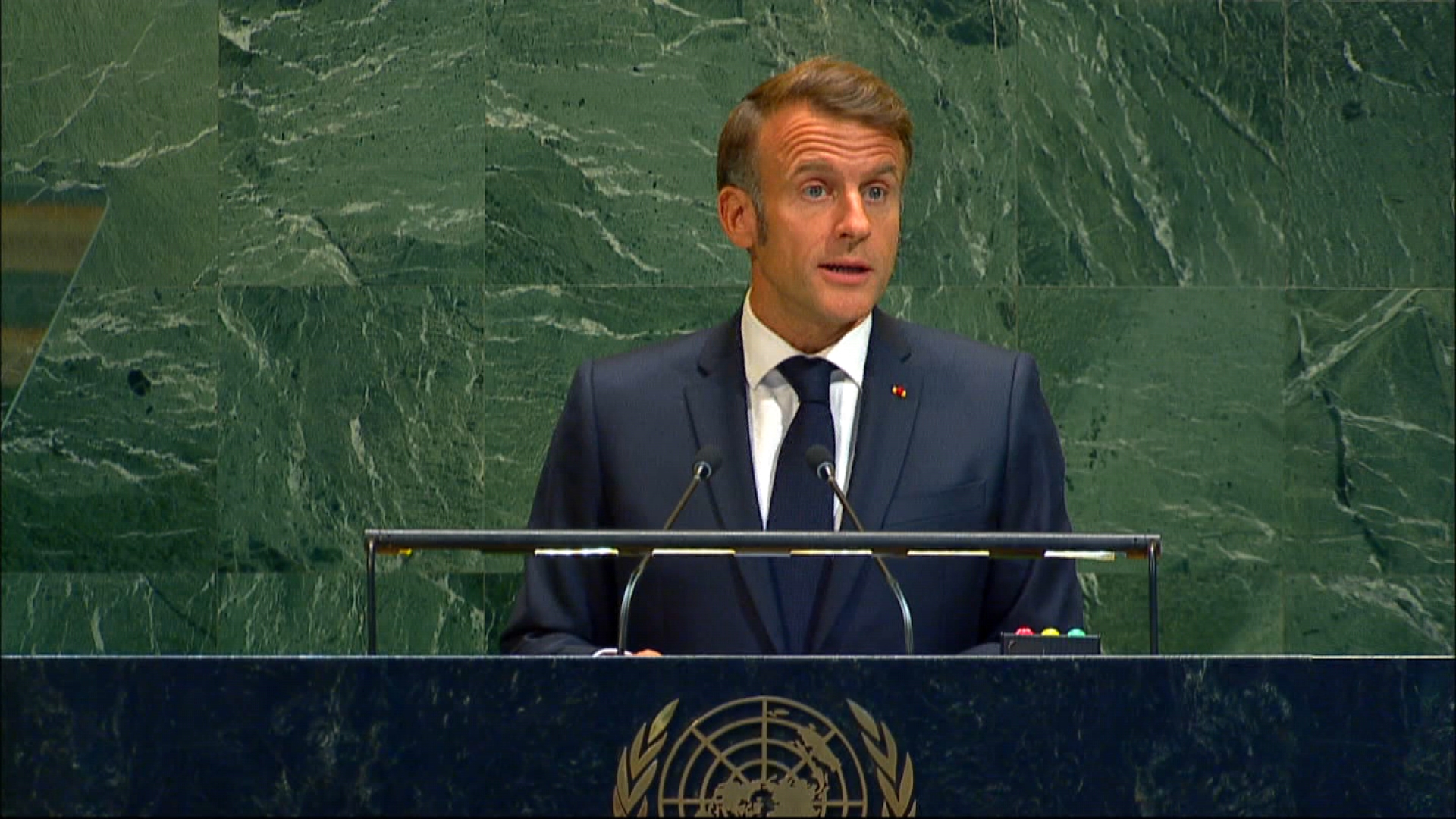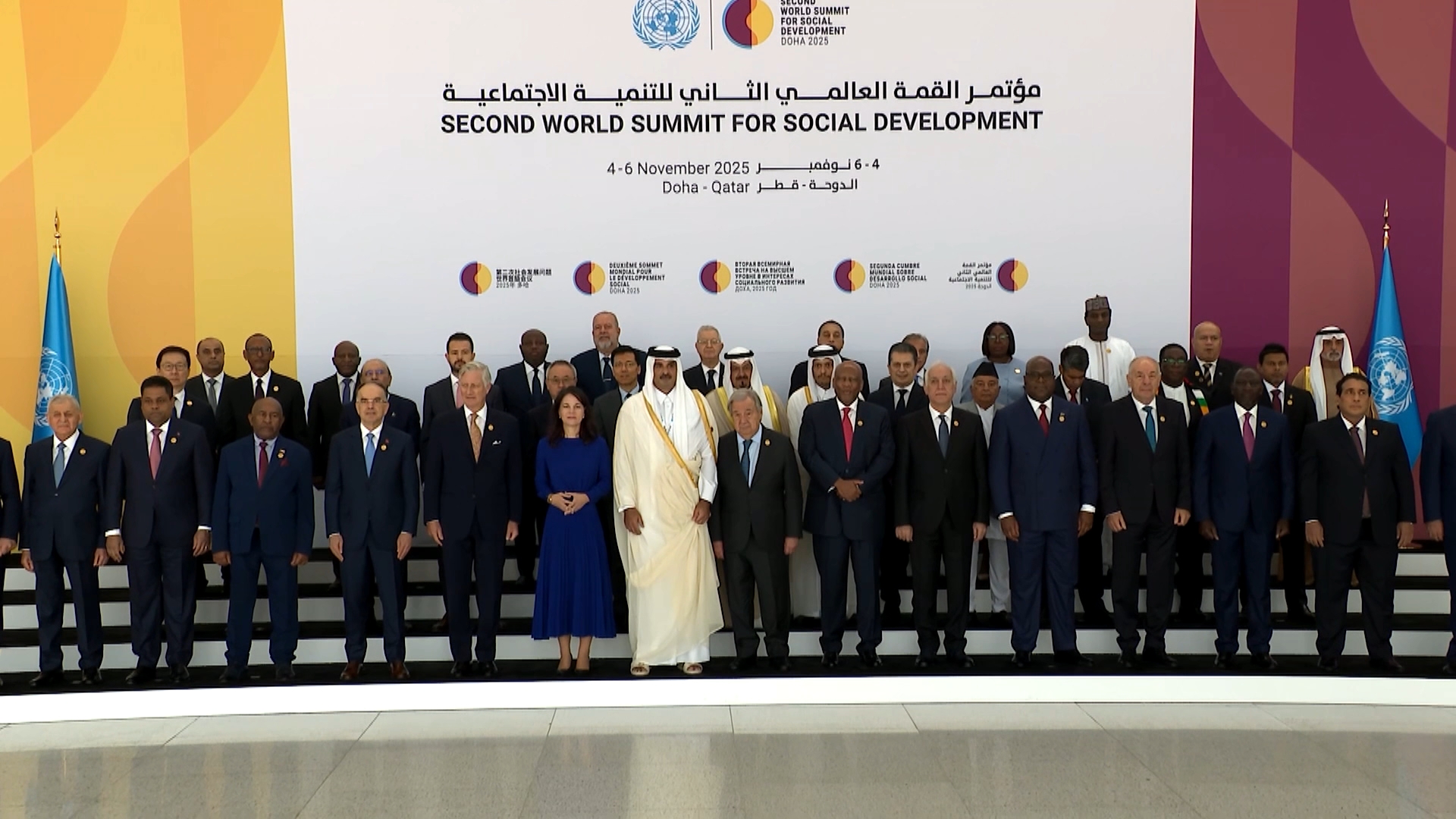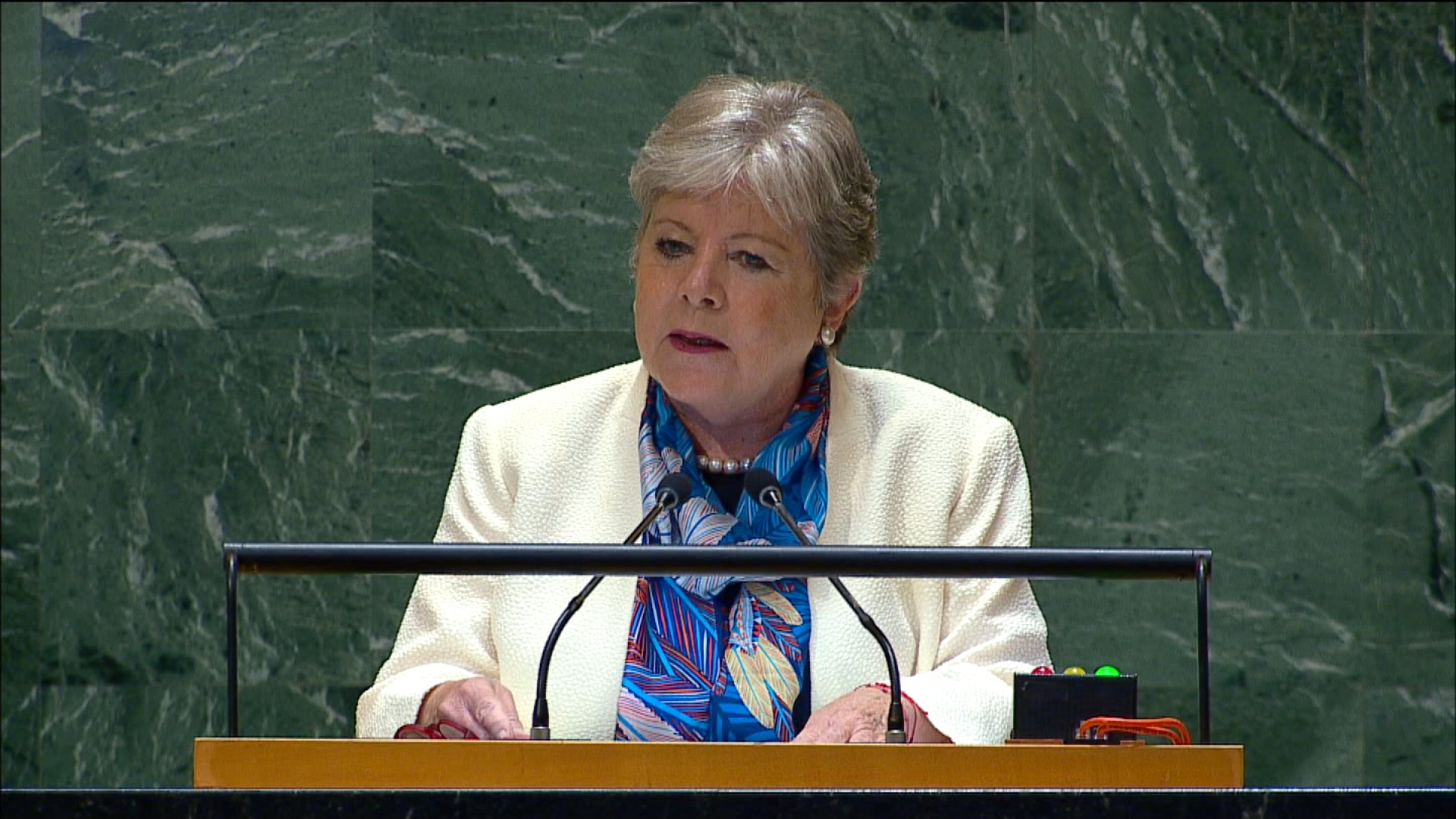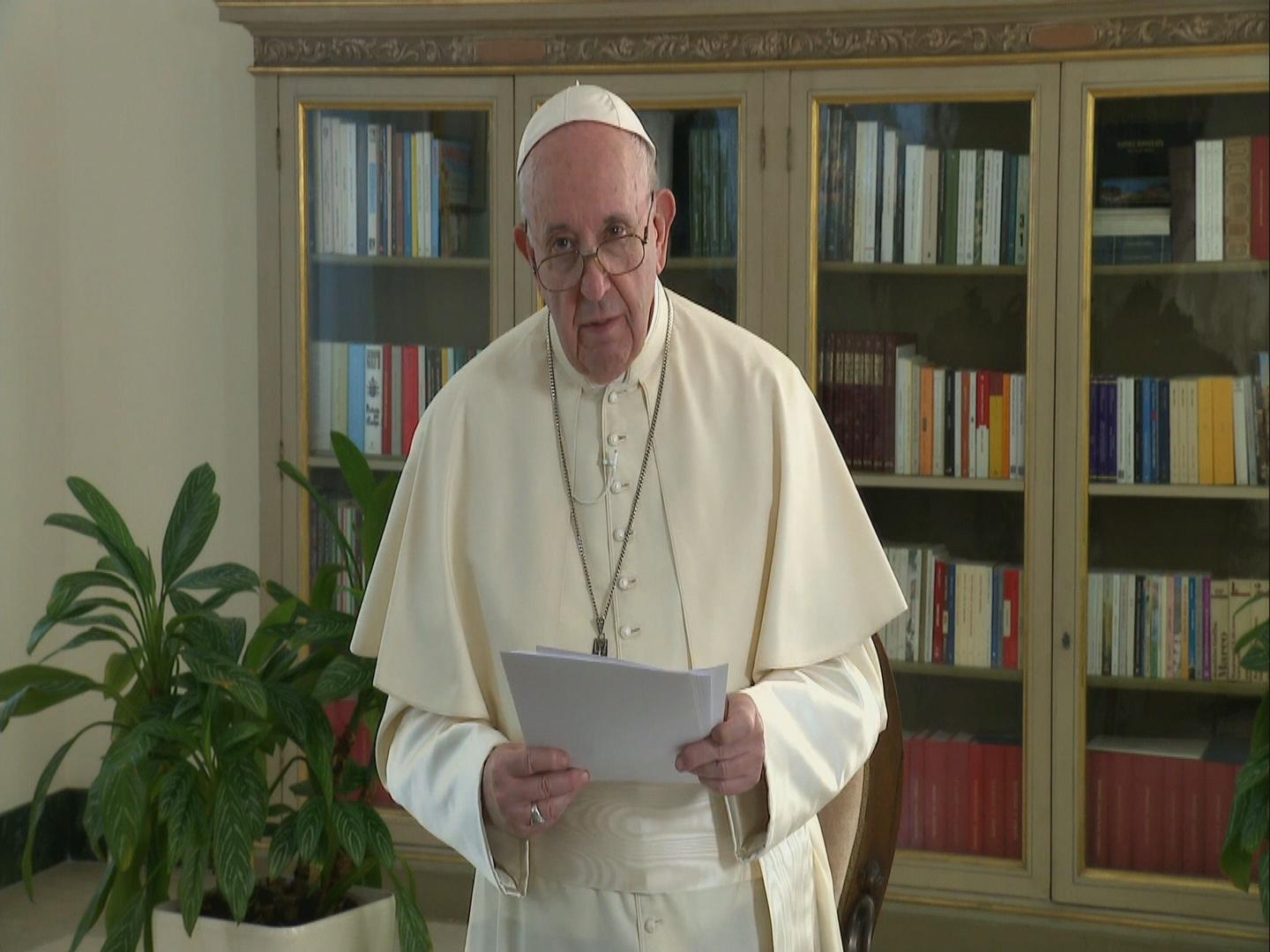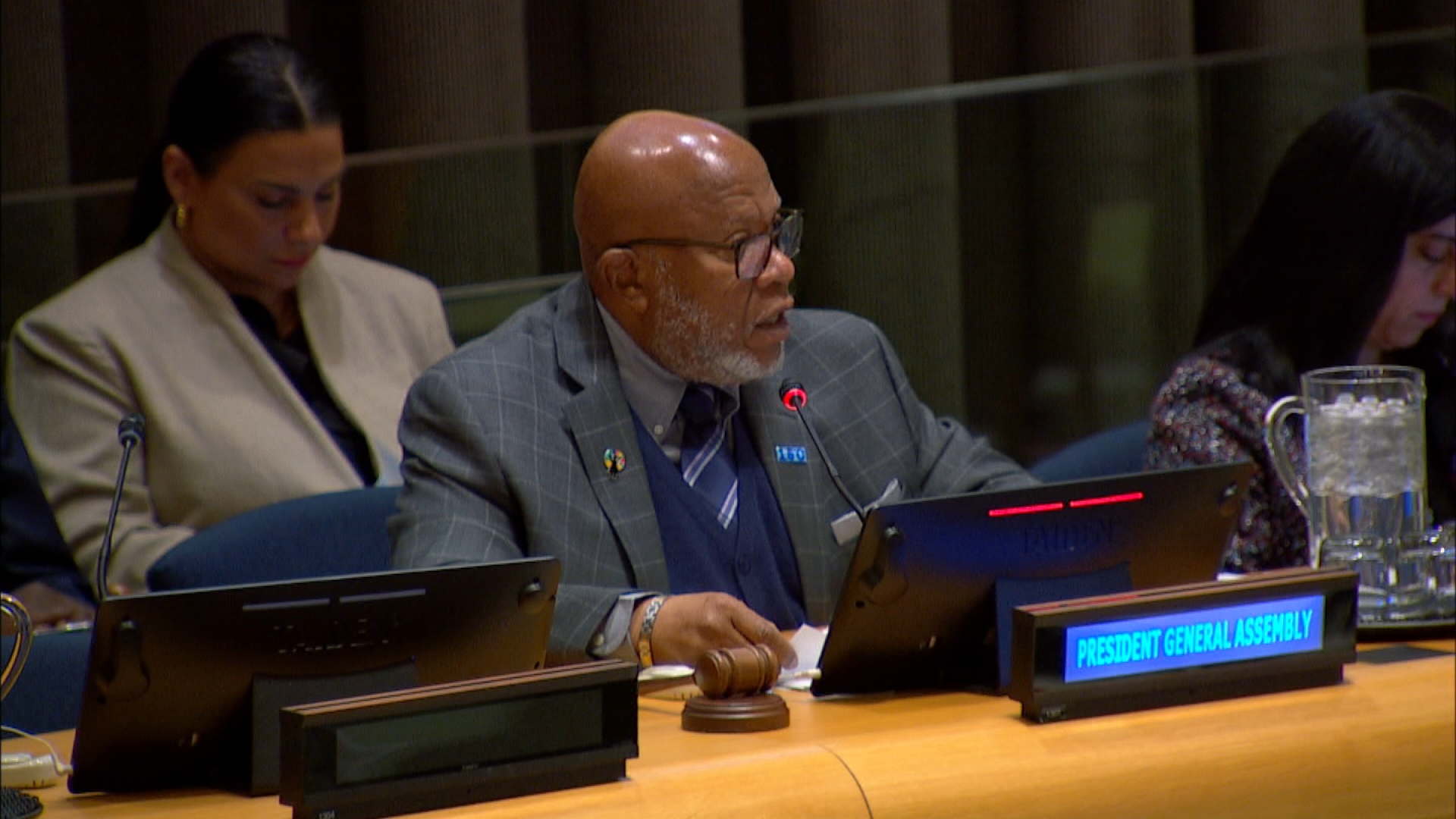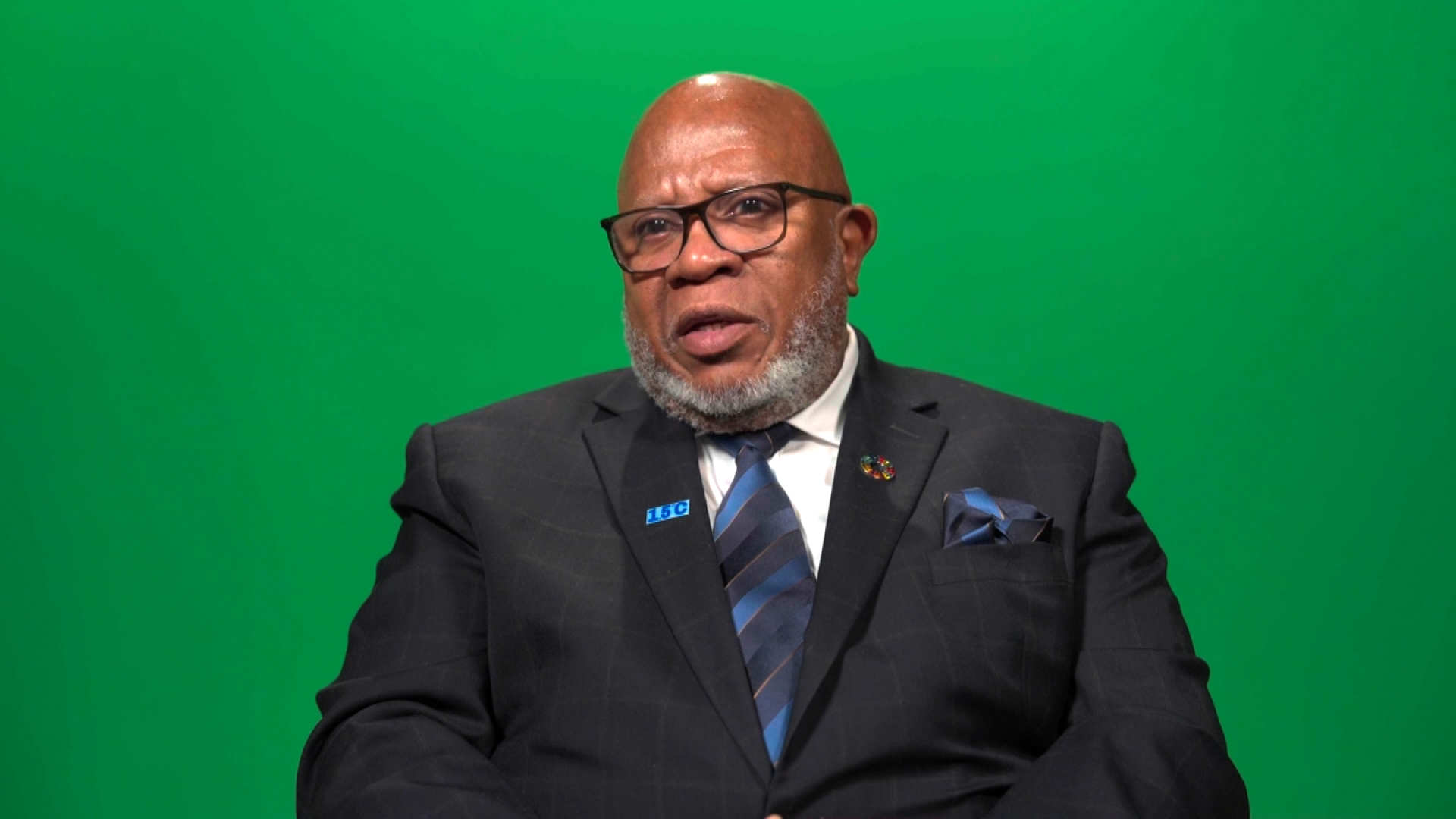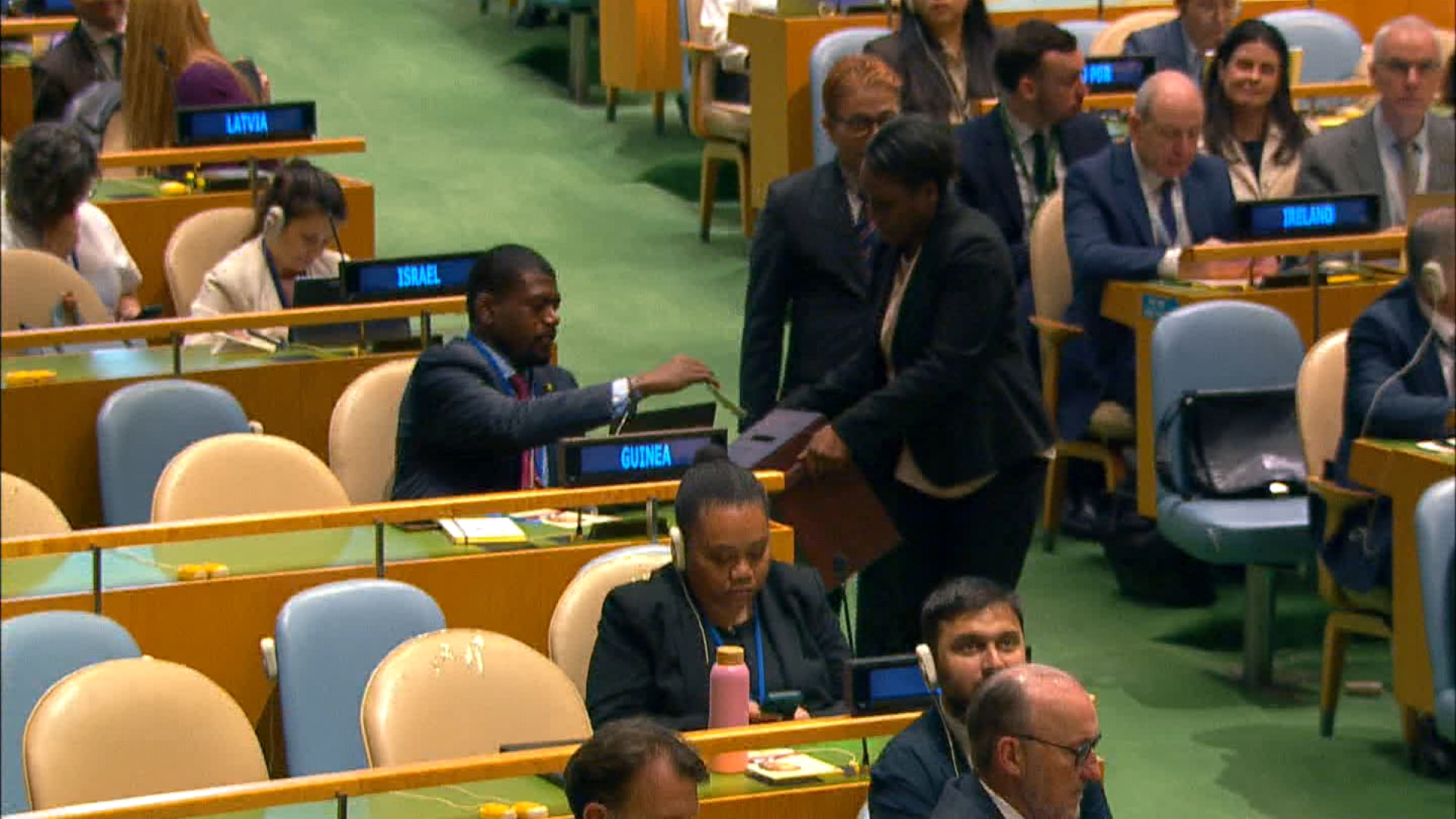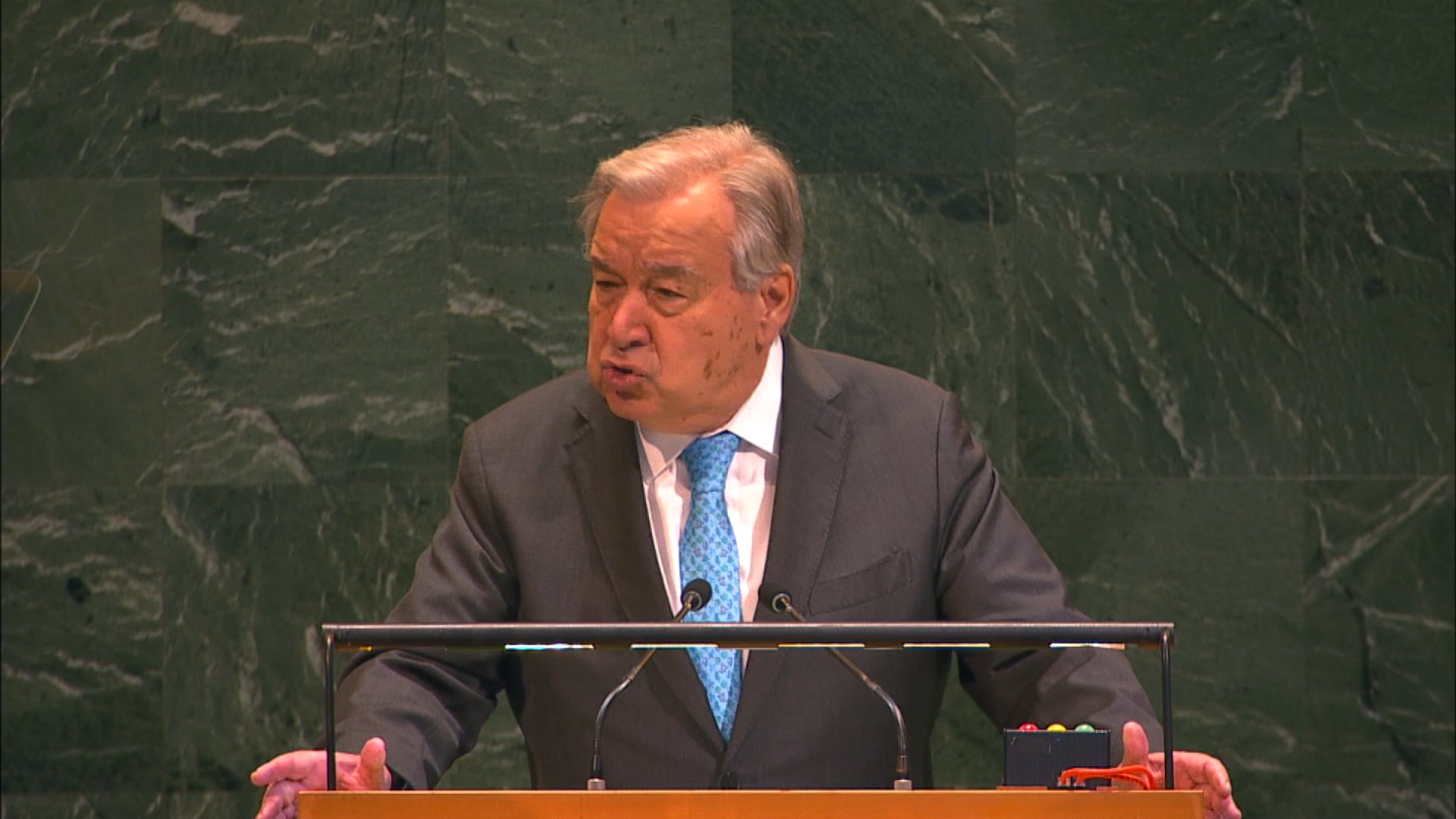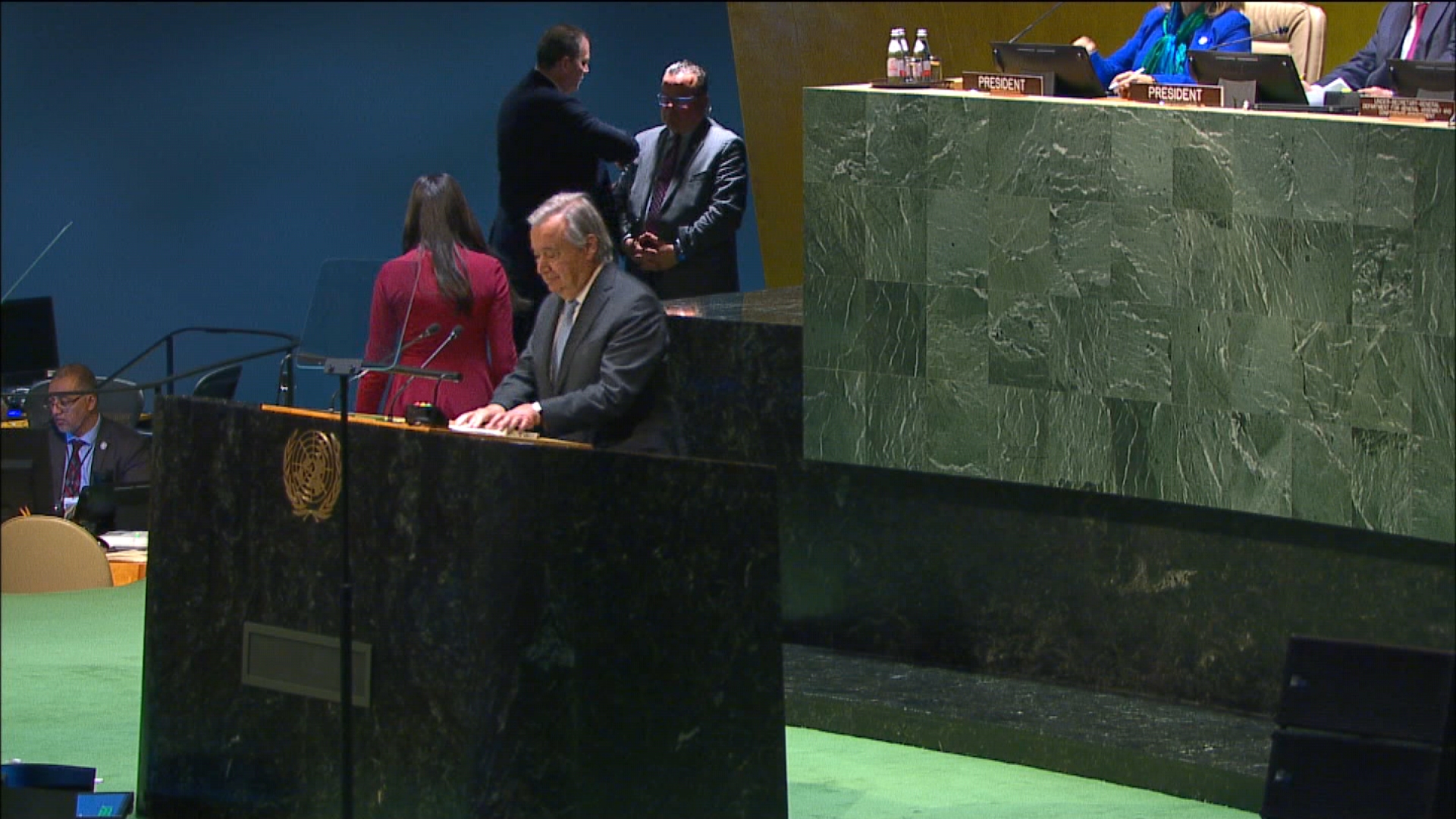DOHA / WORLD SOCIAL SUMMIT HUNGER POVERTY
STORY: DOHA / WORLD SOCIAL SUMMIT HUNGER POVERTY
TRT: 04:05
SOURCE: UNIFEED
RESTRICTIONS: NONE
LANGUAGES: ENGLISH / NATS
DATELINE: 03 NOVEMBER 2025, DOHA, QATAR
1. Wide shot, the Qatar National Convention Centre
2. Wide shot, President of the General Assembly Annalena Baerbock walks to the rostrum
3. SOUNDBITE (English) Annalena Baerbock, President, General Assembly:
“Today, rates of hunger and food insecurity remain alarmingly high. In 2024, roughly 673 million people faced hunger. And about 2.3 billion endured moderate or severe food insecurity. That is billions wondering where their next meal will come from.”
4. Wide shot, speakers
5. SOUNDBITE (English) Annalena Baerbock, President, General Assembly:
“The crisis of hunger is not a lack of food; it is entirely preventable.”
6. Wide shot, roundtable room
7. SOUNDBITE (English) Annalena Baerbock, President, General Assembly:
“We are seeing new epicentres of hunger and poverty emerging as a result of the climate crisis. When I visited the Sahel region, I stood in 53-degree Celsius heat among sand and rocks, I could hardly breathe — where, fifty years ago, cotton once grew. Local farmers told me how the rains no longer come when they used to, the wells have run dry, the harvests have withered. Mothers now ration the little millet they have left. This is not just one farm, or one country—it is the new frontline of insecurity. Rising temperatures are fuelling food crises globally.”
10. Wide shot, Roundtable Room
11. SOUNDBITE (English) Annalena Baerbock, President of the General Assembly:
“It is estimated that every one percent increase in food insecurity drives nearly two percent more people to migrate. Again, this is not a choice. Families do not want to leave their homes, their communities. It is a last resort. And large-scale displacement puts pressure on neighbouring states, straining resources and testing governance. Therefore, ending hunger and poverty is not merely an act of charity, it is a matter of security and self-interest for all countries. But the story doesn’t end there. Hunger does not just follow insecurity and conflict. It fuels them.”
12. Wide shot, roundtable room
13. SOUNDBITE (English) Annalena Baerbock, President, General Assembly:
“This week’s Second World Summit for Social Development is our chance to renew global resolve to tackle this issue. The Doha Declaration calls for holistic strategies to confront multidimensional poverty, hunger, and malnutrition by strengthening resilience, financing, and social protection.”
14. Wide shot, roundtable room
15. SOUNDBITE (English) Annalena Baerbock, President, General Assembly:
“Human security is the foundation of global security. Besides our medium- and long-term strategies—which we need because we can’t change the root causes of this crisis overnight—we should still not forget to focus also on immediate action when, as we sit here today, starvation is growing in certain regions, especially in war zones. Without the World Food Programme, last year alone, 125 million people would have lacked life-saving food assistance. So, we have to remember, every cut we are making, your government, Member States, are currently making to international organisations, always affect real peoples’ lives.”
16. Various shots, roundtable room
Addressing world leaders at the Leaders’ Meeting of the Global Alliance Against Hunger and Poverty, held in Doha as part of the Second World Summit for Social Development, the President of the UN General Assembly, Annalena Baerbock, today (3 Nov) said, “the crisis of hunger is not a lack of food; it is entirely preventable.”
Baerbock warned that hunger and food insecurity remain at “alarmingly high” levels, with roughly 673 million people facing hunger in 2024 and 2.3 billion enduring moderate or severe food insecurity.
“That is billions wondering where their next meal will come from,” she said.
Highlighting the impact of climate change, Baerbock said, “We are seeing new epicentres of hunger and poverty emerging as a result of the climate crisis.” Recalling her visit to the Sahel, she described standing “in 53-degree Celsius heat among sand and rocks,” where farmers told her that rains had stopped coming, wells had dried up, and harvests had failed. “This is not just one farm, or one country—it is the new frontline of insecurity,” she said, adding that rising temperatures are fuelling food crises across the world.
Baerbock stressed that food insecurity also drives displacement, noting that “every 1 percent increase in food insecurity drives nearly 2 percent more people to migrate.”
She warned that large-scale displacement strains neighbouring states and governance systems, saying that “ending hunger and poverty is not merely an act of charity, it is a matter of security and self-interest for all countries.”
Referring to the Doha Declaration, Baerbock said, “This week’s Second World Summit for Social Development is our chance to renew global resolve to tackle this issue. The Doha Declaration calls for holistic strategies to confront multidimensional poverty, hunger, and malnutrition by strengthening resilience, financing, and social protection.”
She also underlined the need for urgent humanitarian response alongside long-term policy reforms. “Human security is the foundation of global security,” Baerbock said. “Without the World Food Programme, last year alone, 125 million people would have lacked life-saving food assistance.”
The Doha meeting marked the first high-level session of the Global Alliance since its launch at the G20 Summit in 2024. It reviewed progress toward its objectives, showcased achievements from the past year, and sought to galvanize new commitments to combat hunger and poverty worldwide.

